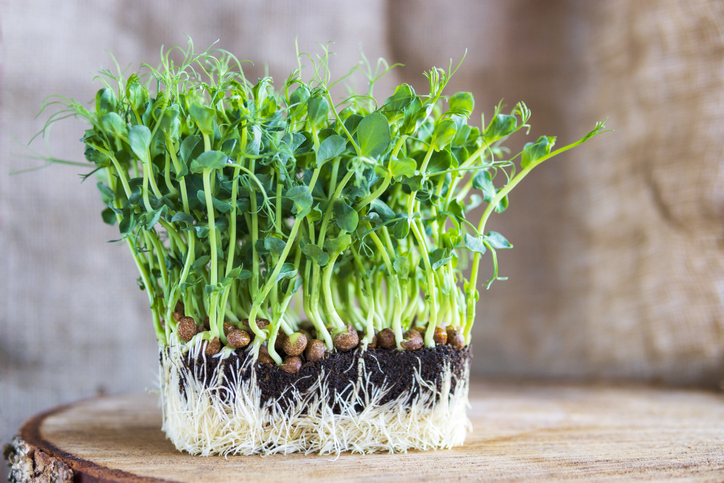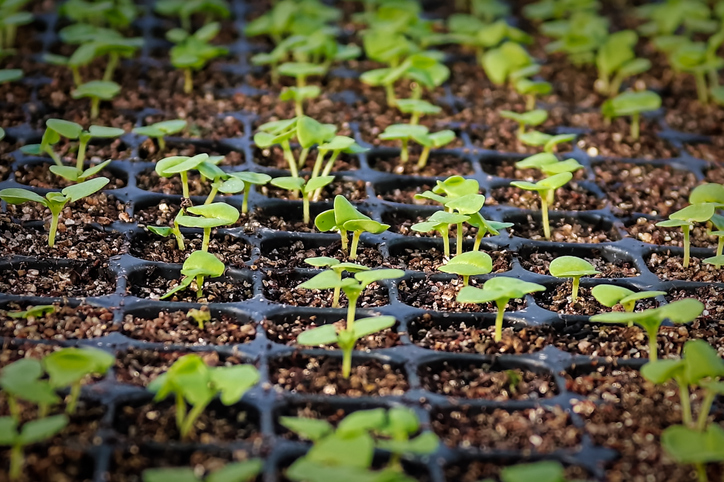Microgreens have long been a staple in the health and nutrition community, gaining popularity in salads and sandwiches everywhere. Microgreens are essentially tiny versions of leafy vegetables or herbs that have been hailed as healthier versions of full-sized greens. More specifically, they are seedlings harvested in the early stages of a vegetable’s growth. Despite their size, microgreens – or “vegetable confetti” – often contain higher nutrient levels than more mature vegetable greens. For students looking to inform their understanding of nutrition and healthy diets, microgreens are one to watch. Read on for a closer look at the nutritional value and health benefits of these tiny greens.
The Different Types of Microgreens
Microgreens are young greens that are approximately 2.5 to 7.5 cm tall. Microgreens are actually considered baby plants, as they are harvested around 7 to 21 days after germination, once the first leaves have begun to appear. Much like baby greens, only the stems and leaves of microgreens are considered edible.

Microgreens are baby plants harvested up to three weeks after germination
There are around 60 different varieties of microgreens, however, the most common varieties are grown from the seeds of the following families:
- Brassicaceae family: Cauliflower, broccoli, cabbage, watercress, radish, and arugula
- Asteraceae family: Lettuce and chicory
- Apiaceae family: Dill, carrot, fennel, and celery
- Amaryllidaceae family: Garlic, onion, leek
- Amaranthaceae family: Beet, spinach, quinoa
In addition, cereal grains or legumes such as rice, oats, barley, and chickpeas can sometimes grow into microgreens. Students earning a diploma in nutrition should take note of these sources for the purpose of planning healthy diets and advising clients of the role of food in the body.

There are approximately 60 different types of microgreens
The Nutritional Value of Microgreens
Microgreens have gained a mainstream following for their high nutrient density. This means that they’re generally more concentrated sources of vitamins and minerals. While nutrient levels in different microgreens may vary, most varieties tend to have higher levels per gram of:
- Vitamin C
- Vitamin
- Potassium
- Iron
- Zinc
- Magnesium
Not to mention, microgreens are a great source of beneficial plant compounds like antioxidants and carotenoids, which are used to make vitamin A and maintain eye health. The high nutritional value of microgreens tends to occur because the nutrient content is concentrated. As such, they contain higher levels of vitamins, minerals, and antioxidants than the same quantity of mature greens. This can be beneficial for consumers who find it difficult to consume enough vegetables in their diet to satisfy their nutritional needs.

Those with a diploma in nutrition should note the health benefits of nutrient-dense microgreens
The Health Benefits Explored For Those With a Diploma in Nutrition
Students in nutrition and health programs explore the fundamentals of nutrition, including the contribution of different foods to the health of the body. It is well known that eating vegetables is essential to maintaining the healthy function of the body and lowering the risk of many diseases. This is thanks to their high quantities of vitamins, minerals, and plant compounds. Microgreens often contain even greater amounts of these nutrients than mature vegetables. As a result, they offer numerous health benefits:
- Reduced risk of heart disease
- Lower risk of certain cancers
- Stronger immune system
- Improved eyesight
- Improved digestion
- Lower cholesterol
Students should pay close attention to these health benefits in order to develop, implement, and evaluate nutrition care plans throughout their future professional roles in the field.
Ready to launch your career with a nutrition diploma program in Ontario?
Contact the Academy of Applied Pharmaceutical Sciences today!




